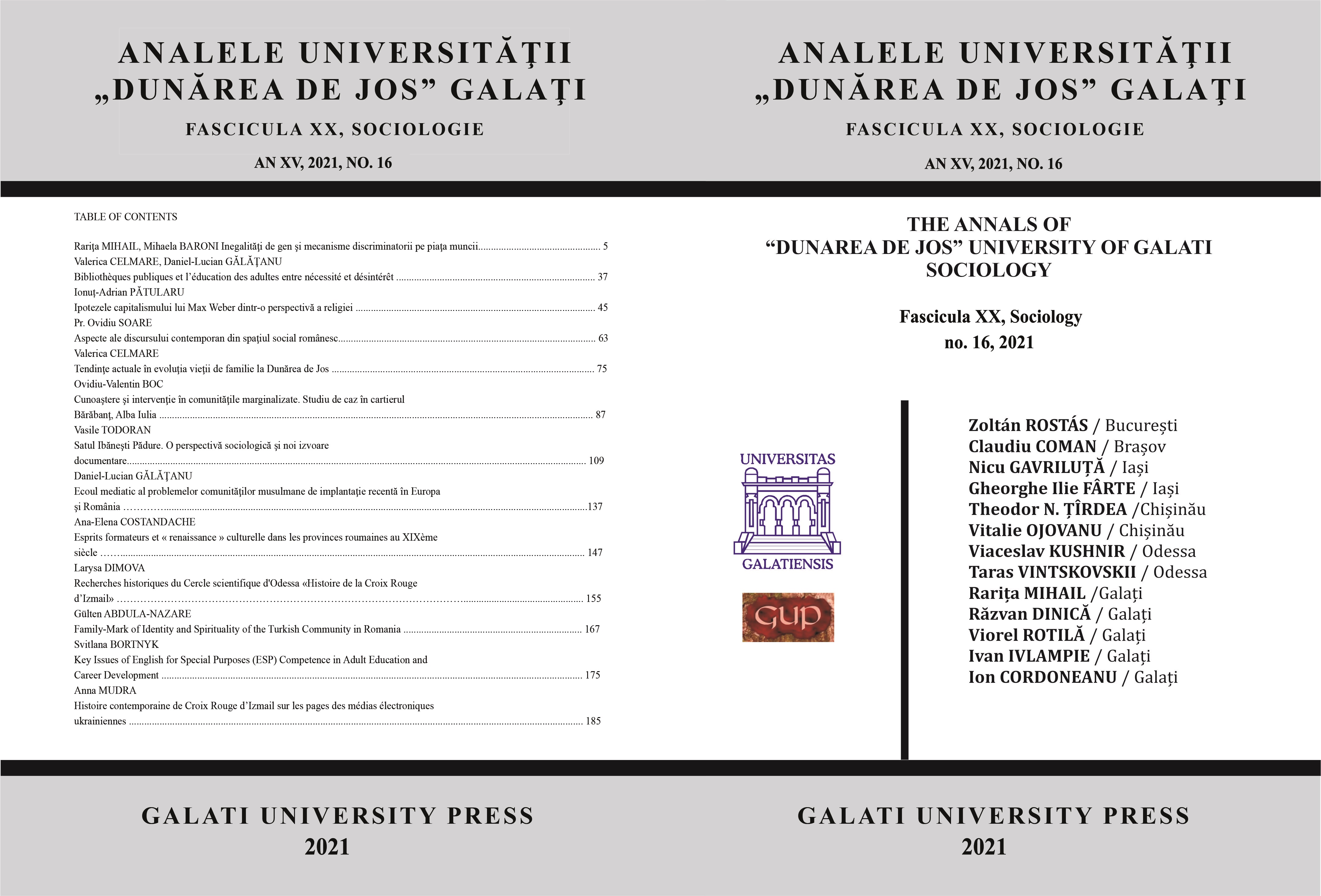Tendinţe actuale în evoluţia vieţii de familie la Dunărea de Jos
Current Trends in Family Life Evolution in the Dunarea de Jos Region
Author(s): Valerica CelmareSubject(s): Regional Geography, Family and social welfare, Rural and urban sociology
Published by: Galaţi University Press
Keywords: family; family life; family models; attitudes towards family; family values; mixed marriages;
Summary/Abstract: The region Dunărea de Jos is an area with an own cultural, identitary and historical specificity, which has synthesized in the collective mind the imprint of all the times that had alternated on these territories. The variation of the socio-economic and political context also influenced the family life of the inhabitants. The ethnic and religious diversity has, in the past, raised the issue of mixed marriages and of differences in family models of communities which were cohabiting. During the period of communism, the family is marked by the rapid process of industrialization of urban areas, by the migration of people from village to city and the birth policies implemented by the government. After the Revolution of December 1989, a period of socio-economic and political transition was instituted in which the family had subjected to a process of diversification in her typological and structural, value and relational aspects. If in the past, the traditional family model was dominant, in today's society we encounter more and more family models, such as single-parent family or consensual union. The migration of residents to western European countries again brings up the issue of interethnic and interreligious mixed marriages or transnational marriages. However, the separation of the couple and the separation of children from their parents is by far one of the most dramatic problems of family life encountered in the researched area. The way parents relate to their children and to the system of values they adopt it in educating children brings into question a mentality inherited from the period of communism, in which many parents, on the basis of poor incomes, gave their children "to the state", meaning they had entrusted their children to the authorities for the purpose of their care and education. Currently, the authorities working towards promoting the protection of children's rights are fighting an assiduous battle to correct this mentality, as the number of children separated from their parents is very high. Based on the above arguments, I set out to make an X-ray of family life in the region Dunărea de Jos, with the following objectives: identifying family models in the studied region, describing the general characteristics of the family in the region Dunărea de Jos, exploring the attitude of local people towards family life, exploring the principles and values regarding the upbringing and education of children.
Journal: Analele Universității „Dunărea de Jos” din Galați, Fascicula XX, Sociologie
- Issue Year: 16/2021
- Issue No: 1
- Page Range: 75-86
- Page Count: 12
- Language: Romanian

